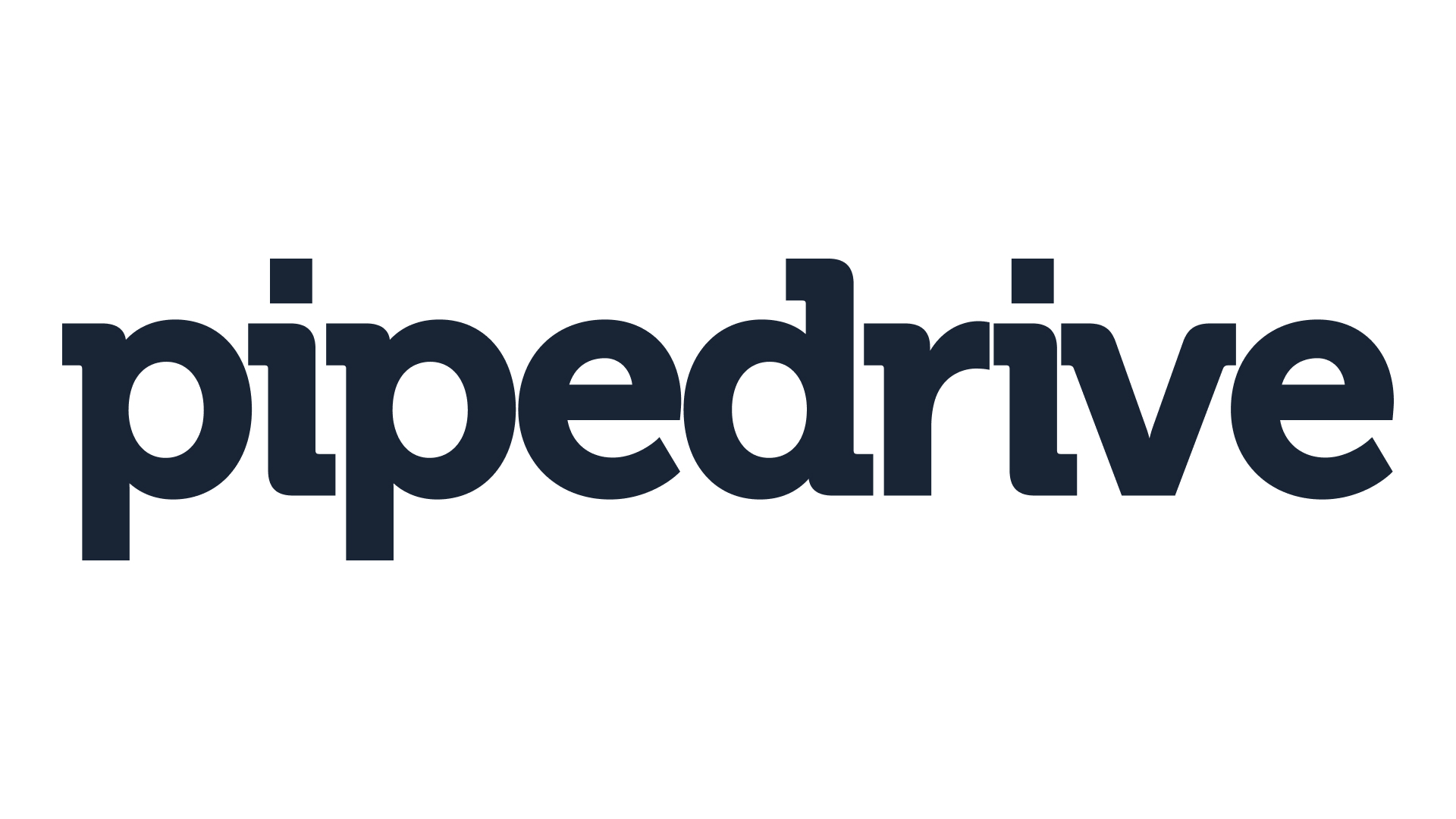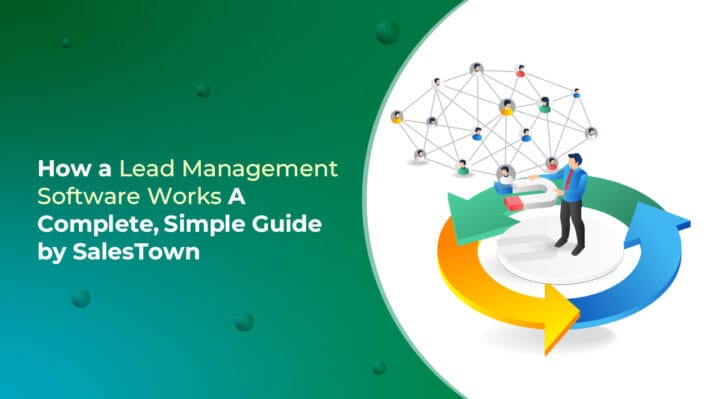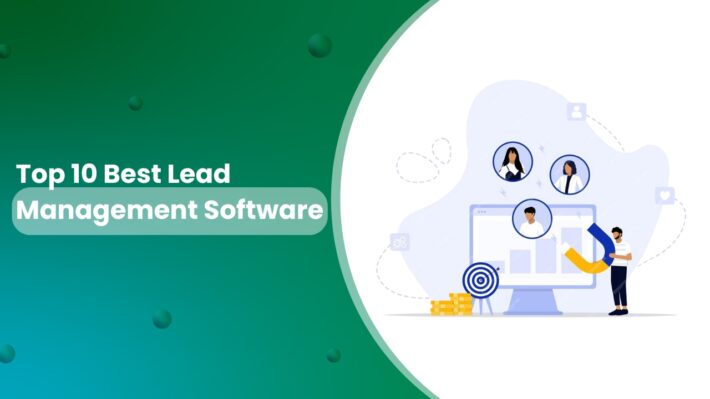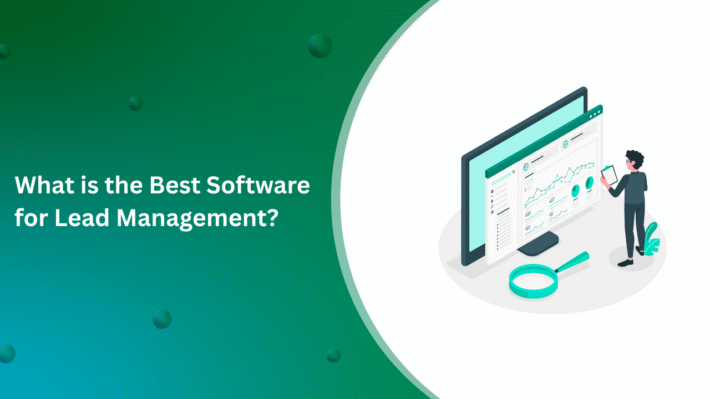Top 10+ Lead Management Systems (LMS) for Sales Teams

Managing leads efficiently is the key to growing any business. A good Lead Management System (LMS) helps businesses track potential customers, automate follow-ups, and improve sales conversions. It also makes customer interactions smoother and provides valuable insights through analytics.
With so many LMS options available, choosing the right one can feel overwhelming. Some systems focus on lead tracking and automation, while others offer detailed reporting, AI-driven insights, and CRM integration. To make things easier, we’ve put together a list of the top 10 LMS software for lead management in 2025. These platforms have been reviewed based on their features, pricing, and real user feedback.
One name that stands out is SalesTown—a powerful and affordable LMS packed with advanced tools for businesses of all sizes. It simplifies lead tracking, automates follow-ups, and provides useful analytics to help sales teams close more deals efficiently.
Comparison of the 10 Top LMS Software Solutions for Lead Management in 2025
When choosing a Lead Management Software (LMS), it’s important to understand how each platform works, what features they offer, and how they compare in terms of pricing and functionality. Some tools are designed for small businesses, offering simple and budget-friendly solutions, while others cater to enterprises with advanced automation, AI-driven insights, and deep CRM integrations.
No matter the size of your business, the right LMS can help you:
✅ Organize and track leads more effectively
✅ Automate sales processes to save time and effort
✅ Improve customer interactions and follow-ups
✅ Analyze sales performance with detailed reports and insights
To make your decision easier, here’s a look at some of the top LMS platforms available in 2025, along with their key highlights:
1️⃣ SalesTown (Try for Free)
2️⃣ Salesforce Sales Cloud
3️⃣ HubSpot LMS
4️⃣ Zoho LMS
5️⃣ Pipedrive LMS
6️⃣ Freshsales LMS
7️⃣ Insightly LMS
8️⃣ Copper LMS
9️⃣ Bitrix24 LMS
🔟 Monday Sales LMS
Which LMS is the Best For Lead Management?
There’s no single “best” lead management Software—it all depends on what your business needs.
- For startups and small businesses, SalesTown, Zoho, and Freshsales offer affordable yet feature-rich solutions.
- For large enterprises, Salesforce and HubSpot provide powerful tools for complex sales processes.
- For Google users, Copper LMS is a great choice.
- For visual and intuitive pipeline tracking, Pipedrive and Monday Sales LMS work well.
Before choosing an LMS, consider your budget, required features, team size, and business goals. Many of these platforms offer free trials, so you can test them before making a decision.
Here’s a more detailed examination of how these 10 solutions can help streamline your Team and Lead management processes.
 | Key Features: | Pricing |
|---|---|---|
| SalesTown is an all-in-one solution for sales, marketing, and customer support. It is specifically designed for businesses looking to simplify and automate their customer relationship processes. |
|
|
Recent user feedback
| ||
Ease of use | Customer service | Overall |
4.8 | 4.6 | 4,7 |
 | Key Features: | Pricing |
|---|---|---|
| Salesforce Sales Cloud is a feature-rich CRM platform designed to help businesses streamline their sales processes and improve lead conversion rates. |
|
|
Recent user feedback
| ||
Ease of use | Customer service | Overall |
4.7/5 | 4.5/5 | 4.6/5 |
| Key Features: | Pricing | |
|---|---|---|
| HubSpot CRM is known for its user-friendly interface and powerful lead management tools, making it ideal for small to medium-sized businesses. |
|
|
Recent user feedback
| ||
Ease of use | Customer service | Overall |
4.6/5 | 4.5/5 | 4.6/5 |
 | Key Features: | Pricing |
|---|---|---|
| Zoho CRM is a comprehensive and budget-friendly solution for businesses of all sizes. |
|
|
Recent user feedback
| ||
Ease of use | Customer service | Overall |
4.5/5 | 4.4/5 | 4.5/5 |
| Key Features: | Pricing | |
|---|---|---|
| Pipedrive is a sales-focused CRM that simplifies lead management with its intuitive pipeline view. |
|
|
Recent user feedback
| ||
Ease of use | Customer service | Overall |
4.4/5 | 4.3/5 | 4.4/5 |
| Key Features: | Pricing | |
|---|---|---|
| Freshsales, part of the Freshworks suite, is designed to simplify lead management with AI-powered insights and robust sales automation features. |
|
|
Recent user feedback
| ||
Ease of use | Customer service | Overall |
4.7/5 | 4.6/5 | 4.7/5 |
 | Key Features: | Pricing |
|---|---|---|
| Insightly CRM is ideal for businesses looking for both CRM and project management capabilities in one platform. |
|
|
Recent user feedback
| ||
Ease of use | Customer service | Overall |
4.3/5 | 4.2/5 | 4.3/5 |
| Key Features: | Pricing | |
|---|---|---|
| Copper CRM is designed to work seamlessly with Google Workspace, making it an excellent choice for teams already using Google tools. |
|
|
Recent user feedback
| ||
Ease of use | Customer service | Overall |
4.5/5 | 4.4/5 | 4.4/5 |
 | Key Features: | Pricing |
|---|---|---|
| Bitrix24 is a versatile CRM that also includes project management, task management, and collaboration tools. |
|
|
Recent user feedback
| ||
Ease of use | Customer service | Overall |
4.6/5 | 4.5/5 | 4.6/5 |
 | Key Features: | Pricing |
|---|---|---|
| Monday Sales CRM, part of Monday.com, is a visual CRM that makes it easy to manage leads, sales pipelines, and projects. |
|
|
Recent user feedback
| ||
Ease of use | Customer service | Overall |
4.3/5 | 4.2/5 | 4.3/5 |
Different Types of Lead Management Systems
A Lead Management System (LMS) helps businesses organize, track, and nurture leads, ensuring a smooth transition from potential customers to paying clients. These tools automate sales processes, improve follow-ups, and provide valuable insights that help businesses close deals faster.
However, not all lead management systems work the same way. They are mainly classified based on deployment methods and functionalities. Let’s take a closer look at the different types of LMS and how they can benefit your business.
1️⃣ Cloud-Based Lead Management Software
What It Is
A cloud-based LMS is hosted on remote servers and accessed via the internet. This means businesses don’t need to install software on their computers or maintain physical infrastructure. Everything runs online, and users can access the system from anywhere.
How It Works
Since the software is hosted on the cloud, it can be accessed using any device—laptop, tablet, or smartphone—as long as there is an internet connection.
Advantages of Cloud-Based LMS
✅ Remote Access – Sales teams can log in and manage leads from anywhere in the world.
✅ Scalability – As the business grows, the software can handle more data without additional hardware costs.
✅ Automatic Updates – New features and updates are rolled out automatically without manual intervention.
✅ Cost-Effective – Most cloud-based LMS platforms use a subscription-based pricing model, eliminating the need for large upfront investments.
🔹 Best For: Businesses looking for a flexible, hassle-free LMS that requires no hardware setup and can scale easily.
2️⃣ Web-Based Lead Management Software
What It Is
A web-based LMS is similar to cloud-based software but operates entirely through a web browser (like Chrome, Firefox, or Safari). The data may be stored either on remote servers or locally on the company’s own infrastructure, depending on the provider.
How It Works
Web-based lead management software runs directly in a browser, meaning there’s no need to download or install any software. Users simply visit a website, log in, and start managing leads.
Advantages of Web-Based LMS
✅ No Installation Required – Works directly from a browser without needing to install anything.
✅ Centralized Data – All lead information is stored in one place, making collaboration easier.
✅ Cross-Device Compatibility – Can be accessed on desktops, laptops, and tablets without worrying about operating system compatibility.
🔹 Best For: Businesses that prefer a simple, browser-based solution that requires no installation.
3️⃣ On-Premise Lead Management Software
What It Is
Unlike cloud and web-based systems, an on-premise LMS is installed and hosted directly on a company’s internal servers. The business owns and manages the software, making it highly customizable and secure.
How It Works
The software is installed on in-house servers, and employees access it through a private network. Since the business manages the system internally, it is responsible for maintenance, security, and updates.
Advantages of On-Premise LMS
✅ Full Control – Businesses own and manage their data, reducing reliance on external vendors.
✅ High Customization – Companies can modify the system to fit their exact needs.
✅ Enhanced Security – Data remains in-house, which is ideal for industries that require strict data protection measures.
🔹 Best For: Large enterprises or businesses that require full control over their data and security.
4️⃣ Mobile-Based Lead Management Software
What It Is
A mobile-based LMS is designed specifically for smartphones and tablets, allowing sales teams to manage leads while on the go.
How It Works
This type of software is usually available as a mobile app or a mobile-optimized web platform. It allows users to track leads, update customer information, and set reminders for follow-ups, even while traveling or working remotely.
Advantages of Mobile-Based LMS
✅ Real-Time Updates – Sales reps can update lead details immediately after customer interactions.
✅ Convenience – No need for a laptop—access everything through a smartphone or tablet.
✅ Increased Productivity – Helps sales teams stay connected and organized, even when they’re away from their desks.
🔹 Best For: Field sales teams and businesses that require real-time updates and mobility.
Key Features to Look for in Lead Management System
When choosing a lead management system (LMS), it’s critical to select a solution that not only organizes and tracks leads but also optimizes your entire sales process. A well-designed LMS should be equipped with features that streamline workflows, improve team collaboration, and increase lead conversion rates. In this guide, we’ll explore the essential features you should prioritize when evaluating potential lead management systems.
1. Lead Capture
What It Is:
Lead capture is the first step in the sales process, where information from potential customers is gathered through various touchpoints such as web forms, landing pages, social media, email sign-ups, or automated chatbots. This information typically includes contact details, interests, and other relevant data that define a lead.
Why It Matters:
An efficient lead capture system automates the process of collecting and organizing leads, ensuring that no opportunities are missed. This automation eliminates the need for manual data entry, saving your team valuable time and minimizing the risk of errors. By capturing and categorizing leads as they enter the funnel, your sales team can focus on meaningful engagement rather than administrative tasks, ultimately improving response times and conversion rates.
2. Lead Scoring
What It Is:
Lead scoring is a method used to assign a numerical value or score to each lead based on their likelihood of converting into a paying customer. This score is determined by evaluating various factors such as the lead’s level of engagement with your content (e.g., opening emails, clicking links), demographic data (e.g., industry, job title), and behavior (e.g., site visits, form submissions).
Why It Matters:
Lead scoring helps your sales team prioritize the most promising leads, allowing them to focus efforts on those that are more likely to convert. By identifying high-value leads early, you can tailor your outreach strategies accordingly. Not only does this increase efficiency by reducing time spent on low-priority leads, but it also boosts conversion rates by targeting the leads that matter most.
3. Lead Assignment
What It Is:
Lead assignment is the process of allocating incoming leads to the appropriate sales representatives based on predefined criteria such as geographic location, product interest, sales rep expertise, or workload. Lead assignment can be automated or manually configured depending on the structure of your sales team.
Why It Matters:
Proper lead assignment ensures that each lead is handled by the sales representative most suited to address their needs. When leads are assigned based on expertise or familiarity with a specific product or region, it increases the likelihood of successful conversions. Automation of this process further streamlines operations, ensuring that no lead is overlooked, and that the right person reaches out at the right time, ultimately boosting your team’s efficiency and effectiveness.
4. Lead Tracking and Analytics
What It Is:
Lead tracking enables businesses to monitor the movement of leads through the sales pipeline, from initial contact to final conversion. Integrated analytics tools provide valuable insights into how leads are engaging with your content, how long it takes to close each deal, and where leads drop off in the funnel.
Why It Matters:
Tracking leads in real time allows you to identify potential roadblocks in the sales process and optimize your lead management strategies. Analytics provide a deeper understanding of which lead sources and activities are most effective, empowering your team to refine their approach. By identifying patterns and trends, you can continuously improve your sales process and shorten the sales cycle, ultimately increasing the overall success rate.
5. CRM Integration
What It Is:
CRM (Customer Relationship Management) integration refers to the ability of your lead management system to synchronize with your CRM platform, centralizing all customer and lead data in one place. This integration ensures that every interaction, communication, and transaction is captured and stored, offering a comprehensive view of the customer journey.
Why It Matters:
Integrating your LMS with your CRM system ensures that all customer and lead data is stored and accessed from a single source of truth. This centralized view not only provides your sales team with deeper insights into each lead’s history and interactions but also streamlines communication across departments. By having all relevant information at their fingertips, your team can provide more personalized, timely, and relevant follow-ups, leading to better customer relationships and higher conversion rates.
6. Automated Follow-Ups and Reminders
What It Is:
Automated follow-ups and reminders help ensure consistent, timely communication with leads. These systems can automatically send emails or reminders to the sales rep when it’s time for follow-up, reducing the risk of missed opportunities. Automated workflows can also trigger actions based on specific lead behaviors or events.
Why It Matters:
Automation ensures that follow-up actions are never missed, helping your team stay engaged with leads at critical stages of the sales process. By eliminating the need for manual tracking, automated reminders reduce the likelihood of human error, ensuring that all leads are nurtured according to their specific needs and timelines. This level of responsiveness improves customer experience and increases the probability of conversion.
7. Customizable Dashboards and Reporting
What It Is:
Customizable dashboards provide personalized, at-a-glance views of your sales pipeline, displaying key performance indicators (KPIs) and important metrics like lead volume, conversion rates, and sales rep performance. Reporting tools generate in-depth insights into sales activities, trends, and performance, which can be used to inform strategic decisions.
Why It Matters:
With customizable dashboards, your team can track and measure performance in real time, enabling quicker adjustments and data-driven decision-making. Detailed reporting allows for deeper analysis of sales trends, lead behavior, and campaign effectiveness. By monitoring and adjusting based on these insights, managers can optimize sales strategies and improve team performance across the board.
8. Multichannel Communication
What It Is:
Multichannel communication refers to the ability to engage leads through multiple communication platforms, including email, phone, live chat, social media, and SMS. This approach ensures that your sales team can connect with leads on their preferred channels.
Why It Matters:
Engaging with leads through their preferred channels fosters a more personalized, responsive experience. By providing multiple touchpoints for communication, you cater to a variety of customer preferences, increasing the likelihood of engagement and improving response rates. Multichannel communication also helps ensure that your sales team can meet leads where they are, fostering stronger relationships and faster conversions.
9. Collaboration Tools
What It Is:
Collaboration tools enable sales teams to share information, assign tasks, and communicate internally about specific leads. Features might include shared notes, internal messaging systems, task management, and document sharing.
Why It Matters:
Effective collaboration is vital for sales teams, particularly when handling complex or high-value leads. These tools allow team members to seamlessly share knowledge, insights, and updates on leads, ensuring everyone is aligned and working toward the same goals. By facilitating internal communication and teamwork, collaboration tools improve efficiency and ensure no lead is neglected or overlooked.
Key Benefits of a Lead Management System (LMS)
A Lead Management System (LMS) is a tool that helps businesses handle potential customers (leads) more efficiently. It ensures that no leads are lost, helps sales teams respond quickly, and increases the chances of converting leads into paying customers. Let’s go step by step to understand its major benefits.
1. Collects and Organizes Leads in One Place
Businesses get leads from different sources—websites, social media, email campaigns, phone calls, and ads. An LMS gathers all these leads in one central system so that sales teams don’t have to check multiple places. This makes tracking and managing leads much easier and prevents missing out on potential customers.
2. Increases the Chances of Turning Leads into Customers
Not all leads are equally interested in your product. Some may just be exploring, while others are ready to buy. An LMS helps identify the most promising leads based on their behavior, such as how often they visit your website or interact with your emails. By focusing on these leads first, sales teams can close deals faster.
3. Sends Automatic Follow-Ups and Personalized Messages
Many customers need follow-ups before they make a decision. An LMS can automatically send reminders, personalized emails, or special offers to keep them interested. This automation ensures that no lead is forgotten and that businesses stay connected with potential customers.
4. Saves Time by Automating Repetitive Tasks
Instead of manually assigning leads, setting reminders, or updating lead status, an LMS does it automatically. This helps sales teams spend less time on admin work and more time talking to customers and closing deals.
5. Improves Teamwork and Collaboration
An LMS allows sales, marketing, and customer service teams to work together more effectively. Everyone can see lead details, track progress, and update statuses in real time. This avoids confusion and ensures that no one works on the same lead twice.
6. Provides Valuable Insights and Reports
An LMS generates reports showing how many leads were contacted, how many converted into customers, and which marketing efforts worked best. This data helps businesses make smarter decisions and improve their sales strategies.
7. Ensures Quick Responses to Leads
Customers appreciate fast responses. An LMS sends instant alerts to sales teams when a new lead comes in, ensuring that they follow up quickly. The faster a business responds, the more likely it is to win the customer.
8. Grows with Your Business
Whether you are a small startup or a large company, an LMS can handle an increasing number of leads without slowing down. As your business grows, the system adjusts to your needs, making it a long-term solution.
9. Reduces Costs and Increases Profits
By automating tasks, reducing manual work, and improving lead quality, an LMS helps businesses increase revenue while lowering costs. This makes it a smart investment with high returns.
10. Keeps Lead Data Safe and Secure
An LMS protects lead information with security features like encryption, access controls, and compliance measures. This ensures that customer data is safe from breaches or unauthorized access.
11. Helps in Targeted Marketing
Businesses can group leads based on their interests, location, and behavior. This allows them to send more relevant and personalized offers, increasing the chances of engagement and conversion.
Conclusion:
With so many LMS (Lead Management System) options available, choosing the right one for your business is critical. SalesTown stands out as the most affordable and feature-rich option, but all the software listed above offer unique advantages. Choose based on your specific needs and budget, and watch your business thrive with the right LMS!
Kanchan is a content writer at SalesTown , specializing in creating engaging blogs, marketing content, and SEO strategies. With over 03 years of experience in the CRM industry, Kanchan helps businesses understand and use CRM software effectively. She is skilled in writing for various platforms, including social media, and focuses on enhancing online visibility and connecting with audiences.




